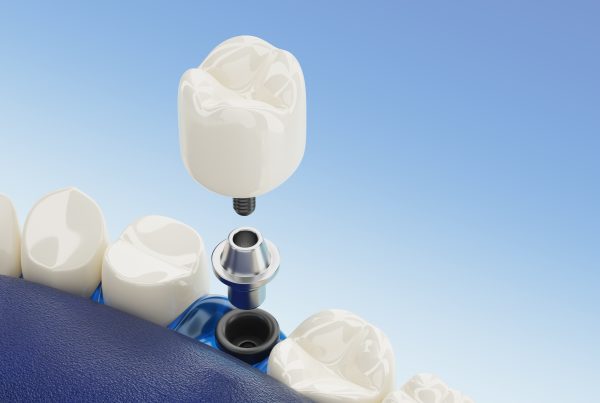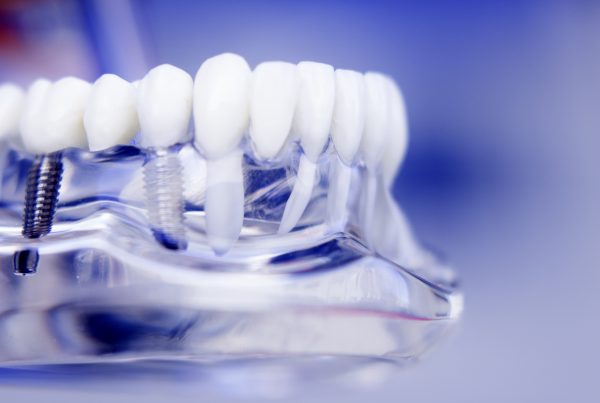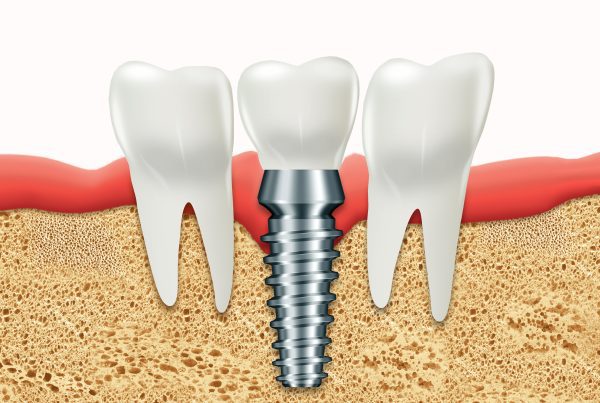The link between diabetes and implant success
If you have diabetes and are considering dental implants, you might be wondering if they’re a safe and effective option for you. Since diabetes can affect healing and increase the risk of infections, it’s natural to have concerns about how your body will respond to the implant process. The good news? Many diabetics successfully get dental implants and enjoy long-term results—when their condition is well-managed. Let’s break down what you need to know about dental implants and diabetes, so you can make the best decision for your smile.

Does diabetes affect how well dental implants heal?
Yes, diabetes can affect how well dental implants heal, but it largely depends on how well the condition is managed. People with uncontrolled diabetes tend to have slower healing times due to higher blood sugar levels, which can impair circulation and reduce the body’s ability to fight infections. This is important because dental implants require the bone and surrounding tissues to heal properly for the implant to integrate successfully.
However, research shows that individuals with well-controlled diabetes can have similar implant success rates to non-diabetics. If blood sugar levels are stable, the body can heal more effectively, reducing the risk of complications. That’s why working closely with both your dentist and doctor to manage your diabetes before and after implant surgery is key to a smooth recovery and long-term success.
How does high blood sugar impact implant surgery and recovery?
High blood sugar is likely to have various negative effects on both implant surgery and recovery:
Slower Healing – High blood sugars may limit circulation to the gum and bone, impairing the natural healing function of the body. The implantation site may heal slowly following surgery.
Increased Risk of Infection – The ideal bacterial proliferation conditions are offered by elevated blood sugars, and hence, diabetics have an increased predisposition to infections around and in surgical sites. Such infections may lead to implant failures in the form of peri-implantitis.
Weakened Bone Integration (Osseointegration) – Osseointegration is vital for successful implantation of the dental implant, where the implant is integrated and fuses in the jawbone. Osseointegration is impaired by high blood sugars, and hence, makes implantation and holding in position in the future challenging.
Gum Health Problems – Diabetes is connected to an increased threat of gum disease, weakening the gum tissue surrounding the implant. If gum disease is poorly treated, in time, it may undermine implant stability.
Delayed Response to Inflammation – In healthy individuals, swelling is quickly met by healing and reduction in swelling. The response may be impaired by elevated blood sugars, and swelling may persist, and there is greater risk for complications.
What Can You Do?
- Work with your doctor to keep your blood sugars stable before and after surgery.
- Maintain good oral hygiene to reduce chances of infection.
- Follow your post-operative dental treatment protocol, such as good diet and no smoking.
- Consider a presurgical evaluation to check on gum health and bone structure.


What steps can diabetics take to improve their chances of implant success?
People with diabetes can enhance the likelihood of successful dental implants by effectively managing their blood sugar levels before, during, and after the procedure. Keeping glucose levels stable is vital for proper healing, minimizing the risk of infection, and ensuring successful osseointegration, which is the process where the implant bonds with the jawbone. It’s important to collaborate closely with both a dentist and a physician to monitor blood sugar levels, adjust medications as necessary, and maintain overall health before surgery. A pre-surgery assessment of bone density and gum health can also help identify any potential issues early.
Besides controlling blood sugar, maintaining excellent oral hygiene is essential. Brushing twice daily, flossing every day, and using an antimicrobial mouthwash can help prevent infections around the implant area. Diabetics should also adhere to their dentist’s post-operative care instructions, which include consuming soft, nutrient-rich foods that aid in healing and avoiding smoking or alcohol, as these can hinder recovery. Regular dental check-ups are crucial for detecting any early signs of complications, ensuring that the implants stay stable and healthy over time.
Is there a higher risk of implant failure for people with uncontrolled diabetes?
There is indeed a greater risk of implant failure for individuals with uncontrolled diabetes. When blood sugar levels remain high, the body’s healing process can be compromised, which is essential for the success of dental implants. Elevated glucose levels can diminish blood circulation, making it difficult for the bone and surrounding tissues to properly bond with the implant. Furthermore, high blood sugar creates a favorable environment for bacteria, raising the chances of infections at the implant site.
Uncontrolled diabetes can also lead to other oral health issues, such as gum disease, which can weaken the tissue surrounding the implant and result in complications like peri-implantitis (inflammation of the tissues around the implant). These factors, along with slower healing and a compromised immune response, make it harder for the implant to successfully integrate with the bone, ultimately heightening the risk of failure. Therefore, it is crucial for diabetics to manage their blood sugar levels before considering implant surgery.


What’s the best way to care for dental implants as a diabetic?
Taking care of dental implants as a diabetic involves a mix of good oral hygiene and effective blood sugar management. The first priority is to keep your glucose levels stable through consistent monitoring, a healthy diet, and any necessary adjustments to medication or insulin. Maintaining stable blood sugar is vital for proper healing, minimizing the risk of infection, and ensuring that the implants integrate well with the bone. Equally important is oral hygiene for implant maintenance.
Make sure to brush at least twice daily with a soft-bristled toothbrush and use floss or interdental brushes to clean around the implant, which helps prevent plaque buildup and gum disease. An antimicrobial mouthwash can also be beneficial in lowering the risk of infection. Regular dental visits and professional cleanings are crucial for keeping the implants healthy and identifying any potential problems early on. It’s also wise to avoid smoking and limit alcohol consumption, as these habits can impede healing and raise the risk of complications.




